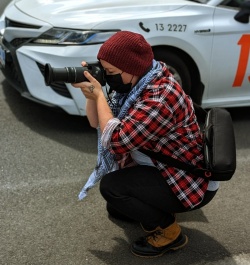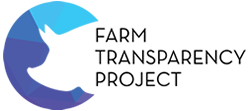News & Media > Editorials > Tasmania, Pandemic and the Exploitation of Non-human Animals
Tasmania, Pandemic and the Exploitation of Non-human Animals
As further social restriction measures are implemented across Tasmania in response to the SARS-CoV-2 pandemic, industries and individuals that rely on the exploitation and slaughter of non-human animals for profit or recreation are being forced to navigate an ever changing landscape. One in which their ability to freely engage in violence against non-human animals is becoming increasingly curtailed.
- The dog and horse racing industry has been banned from racing and trialling, though track work is still permitted.
- All land managed by the Parks and Wildlife Services are officially closed to all forms of hunting and fishing, including the annual slaughter of shearwaters, as well as deer, rabbit, duck, native wildlife and even scallops.
- Hunting and fishing has been banned on lands managed by Hydro Tasmania and Sustainable Timbers Tasmania.
- Free movement to engage in fishing is restricted as regulations stipulate shoreline fishing and boat launches must occur in the municipality in which the individual's primary residence is listed.
- Tasmanian QualityMeats, subject of a 2017 investigation listed on the Aussie Farms Repository (link below), has stood down 44 casual staff members following the loss of orders from the Middle East for frozen lambs and sheep (with the orders amounting to over 6000 individual animals per week). Due to their limited domestic slaughtering capacity only a fraction of the numbers of sheep usually slaughtered are currently being killed.
What does this mean for non-human animals, both wild and ''domesticated''? Sadly, nothing significant in immediate terms.
Slaughter facilities are restructuring their sales policies, and are seeking out new strategies and markets. Cattle prices are still relatively high, and the combination of a low Australian dollar and Federal funding of airfreight services for meat and dairy to the tune of $100 million is enabling some, such as Greenham's, to continue killing even in these economically trying times. Saleyards are continuing to hold auctions for ''livestock'' (though the auctions for equipment have been temporarily suspended). Participants in the racing industry are using the welfare of animals as a bargaining chip to demand more state government funding in addition to the $30 million TasRacing already receives annually. The feedlot is still operational, the lambing season approaches without any signs of slowing this year, and hunting of other animals including fishes may still occur on privately owned property (through travel is restricted).
And unfortunately the restrictions on social movement now prevents any and all forms of physical protest under additional police powers and penalties, which has already resulted in forestry blockades in takayna/the Tarkine being vacated whilst Sustainable Timbers Tasmania continue to destroy animal habitats without the scrutiny of concerned citizens.
However, the true impact of the pandemic on the continuation of industrial and recreational violence against non-human animals will be seen on the economic front, as the animal agriculture and hunting industries face a temperamental and challenging financial landscape for some months to come. This may result in a decrease in the numbers of other animals bred for slaughter, or wild animals killed for human recreation, over the coming years. Some smaller businesses may even be unable to continue in the current economic climate, though the large corporate slaughter companies such as JBS have vowed to continue operations.
And there are some small wins here. For the first time in Tasmania since the effective banning of jumps racing in 2007, the racing industry has found itself banned from operations, setting a potential precedent for the future. Moulting Lagoon, the annual site of conflict between duck shooters and protestors sabotaging the hunt, is closed mere weeks into the season. And the shearwaters, who have been suffering mass deaths globally, are safe for the year.
Though these wins may be small, though they might be more ideological than practical, they are wins nonetheless.
(Photo: Hazel Alger)
https://www.aussiefarms.org.au/facilities/61420-tasmanian-quality-meats-abattoir



